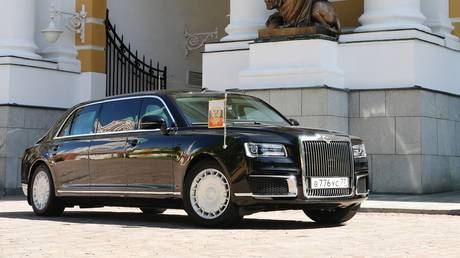
Production of luxury Russian cars begins in UAE
The Aurus Senat will be the first Russian vehicle to be assembled in the Arab country and will later be joined by the Aurus Komendant SUV
Russia has started to assemble the domestic luxury car brand Aurus in the United Arab Emirates, Deputy Prime Minister Denis Manturov announced on Sunday.
Production started with the executive sedan, Aurus Senat, which was popularized as the official limo of Russian President Vladimir Putin. According to Manturov, there are also plans to expand manufacturing to Aurus Komendant SUVs at a later date, although no time frame was specified.
In addition, there are also plans to open a dealership center for the sale and customization of Aurus cars for buyers in the UAE, Manturov noted.
According to the minister, the UAE will become a hub for the supply of Russian luxury vehicles in the Middle East.
“We are considering expansion. First, we will firmly establish ourselves here in the UAE, and then we will move forward,” he said in response to a question about the possible opening of an Aurus showroom in Saudi Arabia.
Read more
Russian MPs to ditch foreign cars
Earlier, Manturov said that the countries of the Middle East and North Africa regions are seen as the main export destination for Aurus cars in the foreseeable future.
Aurus is a line of luxury vehicles that was created in 2013 by order of the Russian Ministry of Industry and Trade with the aim of replacing the fleet of mostly foreign-made cars used by top Russian officials. The brand debuted during Putin’s inauguration in May 2017. However, it was later decided that the cars would be made available to the general public in both foreign and domestic markets.
According to the website of the Panavto dealership, the price of an Aurus Senat sedan starts at $443,700 and for an Aurus Komendant $447,000.
For more stories on economy & finance visit RT’s business section


